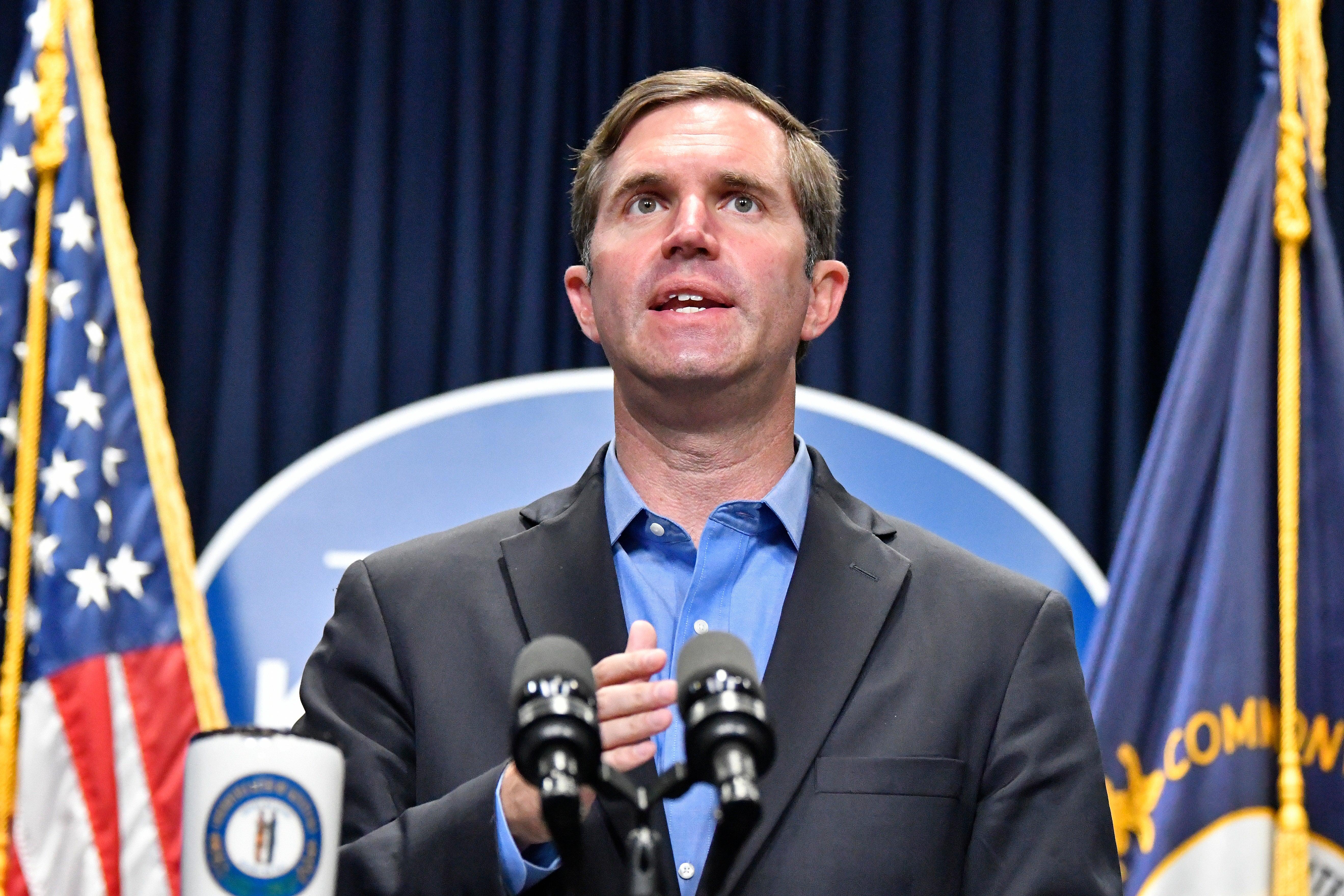Kentucky lawmakers scrap statewide mask mandate in schools
Republican lawmakers in Kentucky have voted in a special session to scrap a statewide mask mandate in schools

Your support helps us to tell the story
From reproductive rights to climate change to Big Tech, The Independent is on the ground when the story is developing. Whether it's investigating the financials of Elon Musk's pro-Trump PAC or producing our latest documentary, 'The A Word', which shines a light on the American women fighting for reproductive rights, we know how important it is to parse out the facts from the messaging.
At such a critical moment in US history, we need reporters on the ground. Your donation allows us to keep sending journalists to speak to both sides of the story.
The Independent is trusted by Americans across the entire political spectrum. And unlike many other quality news outlets, we choose not to lock Americans out of our reporting and analysis with paywalls. We believe quality journalism should be available to everyone, paid for by those who can afford it.
Your support makes all the difference.Kentucky lawmakers, many not wearing masks, voted Thursday to scrap a statewide mask mandate in public schools and shifted masking decisions to local school boards, acting in a special session as the state's worst COVID-19 surge threatens to overwhelm hospitals.
The GOP-dominated legislature set education policies in response to disruptions caused by the virus, which has forced dozens of districts to close classrooms. The masking mandate sparked emotional debate on the third day of the special session called by the Democratic governor to address the pandemic.
The bill now goes to Gov. Andy Beshear who previously issued statewide mask mandates to slow the spread of COVID-19 and recently said he thought another mask order was needed to confront the current surge. Republicans have enough votes to override any Beshear veto.
The special session marked a power shift in the state’s response to the virus. Throughout the pandemic, Beshear acted unilaterally in setting statewide virus policies. Republicans criticized him for what they branded as overly broad and stringent restrictions.
The special session also comes as Kentucky's hospitals struggle with a record influx of virus cases. Beshear warned Thursday that only 90 adult intensive care beds were available statewide — the lowest number of the pandemic. He noted nearly two-thirds of Kentucky's hospitals face critical staffing shortages, and more than 300 Kentucky National Guard members will be headed to 21 hospitals to assist overworked health care workers.
"Our hospital situation has never been more dire in my lifetime than it is right now,” Beshear said.
Republican lawmakers, meanwhile, asserted their newfound dominance in shaping Kentucky's pandemic policies — the result of a state Supreme Court ruling last month. The court cleared the way for laws to take effect limiting the governor’s emergency powers to impose virus restrictions. The justices said a lower court wrongly blocked the GOP-backed measures. The governor responded by calling the legislature into session.
The school-related bill that won final passage would nullify the state school board’s requirement that anyone in public K-12 schools wear a mask. It also would end a separate state mask mandate for child care centers.
Another bill awaiting final action would ban any statewide mask mandate until June 2023, leaving masking decisions up to local governments and businesses. It was part of a broad measure addressing medical staffing, vaccines, tests and treatments related to COVID-19.
During debate on the schools bill, supporters said mask decisions are best left to local boards, to reflect the will of their communities.
“This bill will give local control back to the districts — not mandating they do, not mandating they don't," said Republican Sen. Max Wise, the bill's sponsor. "They make the decision of what they think is best for their constituents in their communities.”
Opponents warned that lifting the mask mandate would put children and school staffs at greater risk of contracting COVID-19. By putting the burden on school boards to decide mask policies, Democratic Sen. Karen Berg said the legislature was abdicating its responsibility.
“I think you are asking for fights in school board meetings, where parents are going to be intimidated, where school board members are going to be intimidated,” Berg said.
Sen. Morgan McGarvey, the chamber's top-ranking Democrat, said removing the blanket protection of masks comes at a time when the delta variant is infecting more young Kentuckians. More than 300,000 Kentucky students aren't old enough to receive COVID-19 vaccinations, he said.
“This bill ... is really a life-and-death bill,” Democratic Sen. Reggie Thomas said. “If we eliminate mask mandates, then we are putting all children and all school personnel at severe risk.”
In the House, Democratic Rep. Pamela Stevenson warned that the virus is so pervasive that the lack of masking requirements in schools would mean that children are going "into the lion's den.”
Republican Rep. John Blanton countered that the bill removes a “one-size-fits-all” approach.
“We are not taking masks away from your children today,” he said. “Masks are still part of the tools that's provided for each and every school district across this state.”
Beshear had asked legislators to give him authority to, at a minimum, require masking when COVID-19 infection rates reach high levels.
The school measure also would give districts more scheduling flexibility to cope with virus outbreaks. It would allow local school leaders to limit remote instruction to a particular school, grade or classroom — depending on the extent of the outbreak — instead of closing the entire district. The overriding goal is to keep children in class when possible, Wise said.
“What we're looking to do here is a fair and flexible method that superintendents can get behind,” said Wise, the Senate Education Committee chairman.